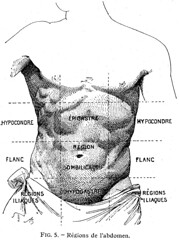Anglų - Lietuvių žodynas
Kompiuterinis žodynas internete nemokamai
cleared

Cleared tarimas:
/klɪrd /
Cleared audio:
Žodžio paaiškinimas anglų kalba:
- adjective: Free from clouds, mist, or haze: a clear day.
- adjective: Not obscured or darkened; bright: clear daylight; a clear yellow.
- adjective: Easily seen through; transparent: clear water.
- adjective: Free from flaw, blemish, or impurity: a clear, perfect diamond; a clear record with the police.
- adjective: Free from impediment, obstruction, or hindrance; open: a clear view; a clear path to victory.
- adjective: Plain or evident to the mind; unmistakable: a clear case of cheating.
- adjective: Easily perceptible to the eye or ear; distinct.
- adjective: Discerning or perceiving easily; keen: a clear mind.
- adjective: Free from doubt or confusion; certain.
- adjective: Free from qualification or limitation; absolute: a clear winner.
- adjective: Free from guilt; untroubled: a clear conscience.
- adjective: Having been freed from contact, proximity, or connection: At last we were clear of the danger. The ship was clear of the reef.
- adjective: Free from charges or deductions; net: a clear profit.
- adjective: Containing nothing.
- adverb: Distinctly; clearly: spoke loud and clear.
- adverb: Out of the way; completely away: stood clear of the doors.
- adverb: Informal All the way; completely: slept clear through the night; read the book clear to the end.
- verb-transitive: To make light, clear, or bright.
- verb-transitive: To rid of impurities, blemishes, muddiness, or foreign matter.
- verb-transitive: To free from confusion, doubt, or ambiguity; make plain or intelligible: cleared up the question of responsibility.
- verb-transitive: To rid of objects or obstructions: clear the table; clear the road of debris.
- verb-transitive: To make (a way or clearing) by removing obstructions: clear a path through the jungle.
- verb-transitive: To remove (objects or obstructions): clear the dishes; clear snow from the road.
- verb-transitive: To remove the occupants of: clear the theater.
- verb-transitive: To remove (people): clear the children from the room.
- verb-transitive: Sports To move or shoot (a ball or puck) away from the goal or out of the defensive zone.
- verb-transitive: Sports To clear a puck out of (the defensive zone), as in ice hockey.
- verb-transitive: Computer Science To rid (a memory location or buffer, for example) of instructions or data.
- verb-transitive: Computer Science To remove (instructions or data) from memory.
- verb-transitive: To free from a legal charge or imputation of guilt; acquit: cleared the suspect of the murder charge.
- verb-transitive: To pass by, under, or over without contact: The boat cleared the dock.
- verb-transitive: To settle (a debt).
- verb-transitive: To gain (a given amount) as net profit or earnings.
- verb-transitive: To pass (a bill of exchange, such as a check) through a clearing-house.
- verb-transitive: To secure the approval of: The bill cleared the Senate.
- verb-transitive: To authorize or approve: cleared the material for publication.
- verb-transitive: To free (a ship or cargo) from legal detention at a harbor by fulfilling customs and harbor requirements.
- verb-transitive: To give clearance or authorization to: cleared the plane to land.
- verb-transitive: To free (the throat) of phlegm by making a rasping sound.
- verb-intransitive: To become clear: The sky cleared.
- verb-intransitive: To go away; disappear: The fog cleared.
- verb-intransitive: To exchange checks and bills or settle accounts through a clearing-house.
- verb-intransitive: To pass through the banking system and be debited and credited to the relevant accounts: The check cleared.
- verb-intransitive: To comply with customs and harbor requirements in discharging a cargo or in leaving or entering a port.
- noun: A clear or open space.
- phrasal-verb: clear out Informal To leave a place, usually quickly.
- idiom: clear the air To dispel differences or emotional tensions.
- idiom: in the clear Free from burdens or dangers.
- idiom: in the clear Not subject to suspicion or accusations of guilt: The evidence showed that the suspect was in the clear.
Lietuviškos reikšmės:
- pašalinta
Žodyno testas
Ką reiškia lietuviškai?
Parinkite teisingą atsakymą
abdomen
/'æbdəmen/
